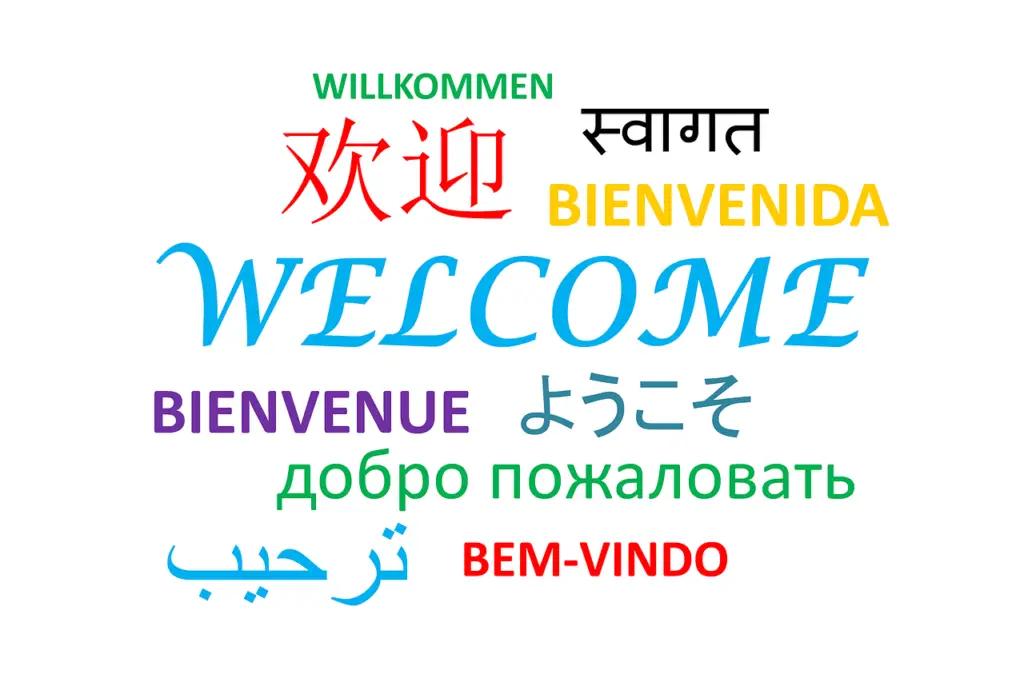Have you ever dreamed of travelling the world? Ever felt yourself wanting to spread your wings and learn something new, make a difference to people’s lives and earn a living all at the same time?
Many people have done just that. Including me. TEFL (Teaching English as a Foreign Language) is a unique opportunity to step outside the mundane reality of life at home and start an adventure to new places, new perspectives and new passions.

So if you’re asking yourself if you should become a TEFL teacher, here are 9 reasons why hundreds of thousands of people around the world love doing it.
ABOUT ME: I became a TEFL teacher in December 2015 when I moved to Madrid. Since then I’ve worked in a language academy, public state schools, studied for a PGCE (teaching degree and license in the UK) and now I’m a private EFL tutor. All 9 reasons in this list have applied to me at some point.
This list shows the benefits of TEFL. But, like everything in the world, it’s not a perfect job, so check out my article Is TEFL Teaching Hard? A guide to whether TEFL is right for you to learn some of the difficulties. Oh, and while you’re at it, read my Big Guide to Starting Out in TEFL.
So let’s get to the list!
- Travel and experience new cultures
- Make money while abroad
- Learn a language
- Learn life skills
- Get practical work experience in education
- Escape
- Find direction
- Meet new people
- Make a difference
1. Travel and experience new cultures
Being able to travel and experience other cultures is probably the most common reason people become TEFL teachers, especially to begin with.
English speakers (especially natives) are privileged. We speak the world’s most important language and, as a result, we have something needed by people across the globe. Business, tourism, entertainment and technology are all heavily skewed towards English.
As a result, TEFL teachers have a variety of places they can go. Popular destinations are in East Asia, Europe and Latin America. Think of a country you’d like to visit, and, chances are, you can become a TEFL teacher there.

Not only can you visit the country, but you can stay there long enough to immerse yourself in the culture. A few weeks of holiday is great. However, living and working around people for months, even years, lets you make far stronger connections.
And if you don’t want to stay in one place for too long, you don’t have to! Plenty of teachers hop from one country to the next every few months, and those teaching online aren’t tied down to anywhere at all.
2. Make money while abroad
There’s a big difference between spending a year backpacking around the world and becoming a TEFL teacher. Money.
When you’re a TEFL teacher, you get paid. Sure, you’re unlikely to get paid a massive wage to begin with, but you can definitely earn enough to live comfortably and, in some cases, save some cash for the future.
Of course you have to work for that salary, which you don’t have to do when you’re backpacking. But that means it’s sustainable. You don’t need to work a horrible job before leaving so you can pay for your travels – you can go straight away and earn your living when you get there.
Not only that, but you can live quite well depending on where you go. While some places only pay TEFL teachers enough to scrape by, others have competitive wages that let you live better than most locals.
To find out how much you can earn in different countries around the world, check out my free resource: How Much Do TEFL & TESL Teachers Make? Countries compared.
3. Learn a language
Another popular reason for people becoming a TEFL teacher is the opportunity to learn the local language.
Plenty of folks from the USA and Canada go to Latin America as TEFL teachers to improve their Spanish, but really, whatever language you learn is going to be incredibly useful.

While English may be the world’s biggest, that doesn’t mean the others are irrelevant. Chinese, Spanish, Japanese and French (to name a few) are still great skills to have under your belt.
And, yes, you can learn a language from your sofa at home. But if you really want to master it and be able to communicate for real, the only way to do that is by spending significant time in a country and speaking it every day.
4. Learn life skills
Most TEFL teachers are young adults. Either straight out of university, or in their mid-twenties, TEFL is definitely something that appeals to younger people who haven’t settled into a stable job at home yet.
I’m not saying you can’t do it if you’re older. Many people do. But this particular reason to do TEFL applies to younger people.
Moving out of your parents’ house comes with a lot of new experiences and learning moments. Moving out of your parents’ house to go and live in a different country where they speak another language and have unfamiliar customs is on another level.

When I moved to Madrid, I had recently finished university. At that time, I had very little experience of things like finding accommodation, setting up bank accounts, and filling out official government documents.
I had to learn all that very quickly. Not only that, but I had to learn it all in Spanish (which I didn’t speak at the time) and with hardly any help from home.
Was it hard? Yes. Was it worth it? Absolutely. In those first few months, I matured a lot. I started taking responsibility for my own life rather than relying on my parents to do things for me. And I enjoyed the new independence I had found.
5. Get practical work experience in education
Being a teacher requires a variety of skills. Most of them are considered “soft” skills – communication, organisation, developing relationships with clients, etc.
It’s not just standing at the front of class and lecturing.
And being an expert in the English language is only part of the job. Of course, you need to have a good grasp of grammar and understand how sounds are made, but what makes a great teacher is their ability to connect with students and adapt to their needs.

Getting this kind of experience is so valuable. Regardless of what your intentions are for the future, the skills you learn as a TEFL teacher apply to almost all situations. Your CV will look better for it.
And if you’re hoping to have a career in education, you’ll already have an advantage over those who haven’t led a real class yet.
6. Escape
This is the number one reason I became a TEFL teacher. I wanted to escape the life I was living in the UK because I wasn’t happy there.
This may not be the greatest reason, but it’s a reality for many.
Whether you’re working in a job you hate, or don’t see any prospects for your future, TEFL offers an accessible opportunity to break free of the grind.

You can start fresh somewhere else. Get some experience working abroad and if/when you return home, there’ll be more doors open for you.
And who says you ever have to go back? TEFL is often seen as a short-term deal. It’s treated like a gap year, or a “phase” that you’ll eventually grow out of when you come back to the “real world”.
Wrong. Yes, for some, it’s a glorified vacation. But it’s perfectly reasonable to turn it into a long-term respectable career. And if you don’t have any better options at home, it’s certainly worth giving a try.
7. Find direction
This entry on the list is going to get a bit vague and “spiritual”. But I think it’s valid. I’m not someone who believes we all have a destiny, or some kind of path set out before us, but I think finding some kind of direction in life is important.
If you don’t know where your future is heading, becoming a TEFL teacher can help you get a better idea.
Travelling abroad and experiencing a new culture opens your mind. Often we get entrenched in our way of doing things and we need something to knock us out of it and force us to reassess what’s important.
When you step out of your comfort zone, you have to figure out new things. What are your priorities? What things do you really want to achieve and how do you want to get there?
It may be that you decide what you really want to do is return home and get a stable 9-5 job. Or you may realise a life of helping impoverished people is right for you.
What you decide isn’t important. Instead, it’s creating the space and conditions for you to make that decision, and being a TEFL teacher can help you do that.
8. Meet new people
People are fascinating. Moving to a new country as a TEFL teacher really makes you see this. On your journey, you’ll meet people from all different backgrounds with worldviews and ambitions which differ wildly from what you and your social group at home are used to.
You’ll establish connections across a broad spectrum. If you do private classes or work in a language academy, students can be any of age and socioeconomic status.

Teaching is a fundamentally social endeavour, and English teaching is even more so since a major part of it is learning to communicate. As a result, you can’t help but engage with others and learn about their lives. It’s a joyous experience.
Not to mention the friends you’ll make outside of work. Most TEFL teachers start by sharing accommodation with others (often locals), and you’ll also meet new colleagues, neighbours, people in the local shop, in bars… the list goes on.
9. Make a difference
TEFL teaching allows you to create a direct positive impact on your students. You can be a force for good in the lives of the wonderful people you’ve met by teaching them a valuable skill.
It’s incredibly rewarding. I’ve taught students from wealthy families and from less fortunate backgrounds. I love classes with all of them. But the ones that really stand out for me are the ones in which I’m giving them something they couldn’t otherwise get.

A good level of English goes a long way. Getting a B2 certificate is required for so many jobs these days and helping someone achieve that opens up opportunities for them to live better lives.
For some of your students, what you teach them could make the difference in getting the job they need to support their family. That’s huge.
Conclusion
I hope you’ve enjoyed reading my list of why people become TEFL teachers. Like I said earlier, all nine reasons have applied to me at some point along my TEFL journey.
Some of them might not be relevant to you, but I’d wager a good portion of them are. And of course, there are other motivations for some people to become TEFL teachers beyond these nine because everyone has their own needs and desires.
If my list has convinced you to look deeper into TEFL, I highly recommend you read my article Big Guide to Starting Out in TEFL: All you need to know.
It’ll take you through the whole process from deciding whether to become a TEFL teacher to figuring out where to go, who to teach, what certificates you need and how to find a job.
And here’s a list of some in-depth articles which guide you through each step of the process.
Is TEFL Teaching Hard? A guide to whether TEFL is right for you
What Are EFL/ESL Classes Like For Teachers?
Is TEFL Legit? Guide to trustworthy certificates and jobs
Do You Need a Degree to Work as a TEFL Teacher?
How to Pick the Right TEFL Destination: 5 steps to success
What Type of TEFL Teaching is For You? Jobs explained
What is the Best TEFL Certificate? Guide to choosing right
TEFL vs. CELTA: What’s the difference? Which is best?
10 Steps to Passing Your TEFL: Study and assignment tips
Is There an Exam for TEFL Courses? What you need to pass
Which TEFL Course Provider to Choose? Why my pick is ITTT
Is it Hard to Get a TEFL Job? Tips on finding employment








